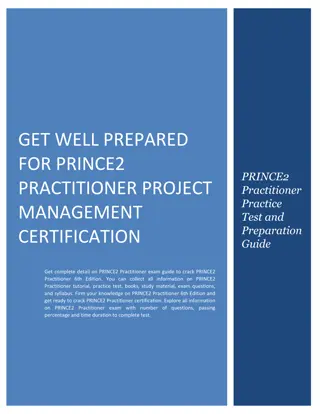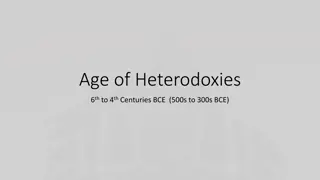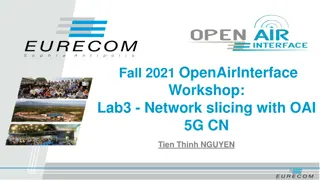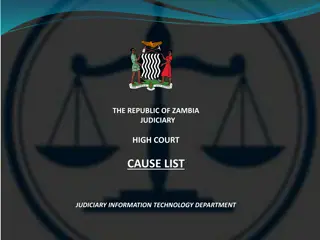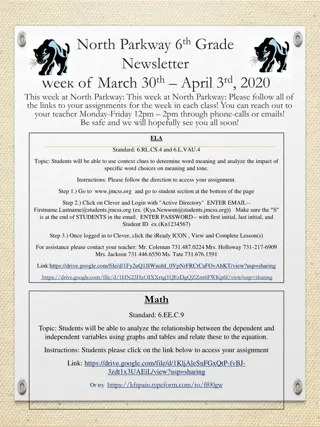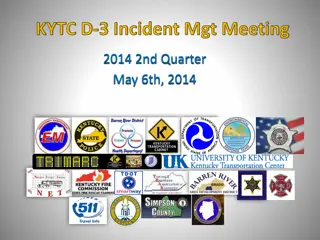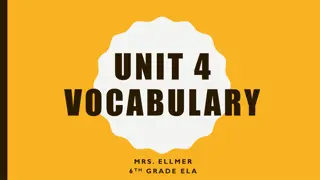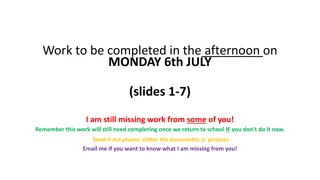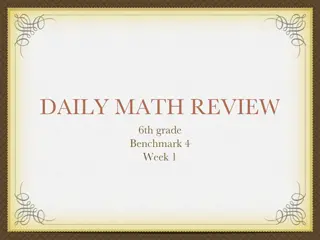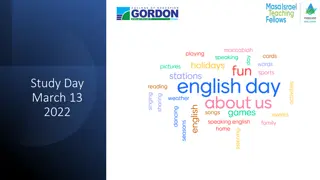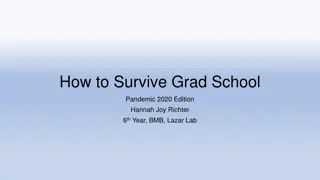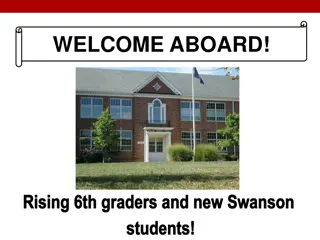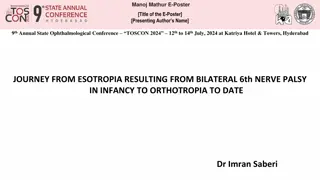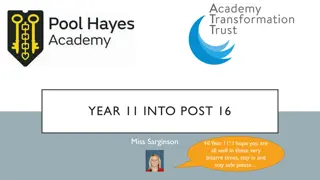
Train Future Trainers in Radiation Protection and Nuclear Technology Program
Develop a training program in radiation protection and nuclear technology focusing on radiochemistry, medical applications, environmental radioactivity, and nuclear reactors. Strategic partnerships with academic and non-academic partners aim to enhance educational initiatives and knowledge exchange. Duration of the project is 24 months involving academic partners from 6 countries. Students trained in specific skills will become future trainers in the field. Quality training and communication are vital for security in the industry.
Download Presentation

Please find below an Image/Link to download the presentation.
The content on the website is provided AS IS for your information and personal use only. It may not be sold, licensed, or shared on other websites without obtaining consent from the author. If you encounter any issues during the download, it is possible that the publisher has removed the file from their server.
You are allowed to download the files provided on this website for personal or commercial use, subject to the condition that they are used lawfully. All files are the property of their respective owners.
The content on the website is provided AS IS for your information and personal use only. It may not be sold, licensed, or shared on other websites without obtaining consent from the author.
E N D
Presentation Transcript
Train the trainees. Train future trainers in radiation protection and nuclear technology Program: ERASMUS+ Karin Van Loon Isabelle Gerardy, PhD Brussels Engineering School, Brussels Brabant University Coll ge kvanloon@he2b.be igerardy@he2b.be
Objectives Development of a training program in radiation protection and nuclear technology mixing technological aspects but also management and communication skills for three different axis: Radiochemistry and medical application Environmental radioactivity Nuclear reactors and waste management
Why? Security depends on quality of training and communication, Students will be the future trainers in their specific skills, Professionals have to share knowledge and experiences, Professionals have to train within the Companies
Strategic Partnerschips in a few words Strategic Partnerships aim to : develop initiatives addressing one or more fields of education training, promote innovation, exchange of experience and know-how between different types of organizations involved in education.
Duration Project Start Date: 01-10-2018 Project End Date: 30-09-2020 Total Duration: 24 months
Partnership : Academic partners Academic Partners representing 6 countries: HAUTE ECOLE BRUXELLES-BRABANT (HE2B) BELGIUM (Coordinator) UNIVERSITEIT HASSELT (UHasselt) BELGIUM CZECH TECHNICAL UNIVERSITY IN PRAGUE (CUT) CZECH REPUBLIC HOCHSCHULE MANNHEIM GERMANY UNIVERSITA DI BOLOGNA (UNIBO) ITALY UNIVERSIDADE DA BEIRA INTERIOR (UBI) - PORTUGAL UNIVERSITAT POLITECNICA DE VALENCIA (UPV) - SPAIN
Partnership : Non-academic partner Non-academic partners to add value to the partnership: GREEK ATOMIC ENERGY COMMISSION (EEAE) GREECE The non-academic partner have been chosen according to: it competence in a specific field it possibility to promote the program during and after this project it help during the previous partnership
Partnership: Associated partners Three associated partners chosen according their competences, knowledge or material support they can offer: Tecnubel/ECS/Transnubel: decommissioning and waste management FANC: regulatory body, help in methodological approach and in future dissemination of the result JRC: reference materials and measurement devices in environmental training and nuclear measurement
Ways to full fil these objectives For each axis: E-learning (= virtual mobility) Video-live learning Training courses (= real mobility) For a total of 8 ECTS: 1 week real training during the first year (2 ECTS) 1 week real training during the second year (2 ECTS) For each training school, 2 ECTS pre-training activity each year (2*2 ECTS) An Europass will be delivered for each axis of 8 ECTS
How does it work? E-learning modules : E-platform will be used to share all the relevant document needed for the program Task in advance will be given to the students organised in multi national groups. Activities: Learning the pre-requisite of pre-training school and training modules Joined preparation works : lectures given important issues for the first year training school will be created on the E-platform. Video conferencing will be used to let the group work under the supervision of a teacher
How does it work? Real mobility : access to a large experimental devices not present in each country to be given the opportunity to do a trainer internship in other EU countries Video live learning to create joined classroom : preparing the second year training schools students of each institution can take benefit from the competences of teachers from abroad without real mobility
How does it work? Mobility trainings consist in 5 days of experimental work on real devices The training modules involve student mobility and staff mobility The institutions where the different modules will take place, will also be in charge of the development of each module in pre-training activities (These institutions have be chosen according to the experimental devices they can give access to) A total number of 20 students/module (mean of 2/partner).
Traject of a student over 2 years 2018/2019: 4 ECTS 2019/2020 : 4 ECTS UHasselt/Tecnubel/JRC Unibo/ HE2B/ UHasselt/JRC/FANC UBI CTU Mannheim/UPV Trainings school 2 Optimized program 1 week : face to face training Internship training for a targeted group of trainees E-learning course 2 Multi-sites synchronous video teaching Tasks in advance : training, preparation Trainings school 1 Optimized program 1 week : face to face training Trainer skills integrated in dedicated nuclear topic E-learning course 1 Group interaction with Google Hangout or others Tasks in advance Topic 1 : nuclear reactors and radioactive waste Topic 2 : radiochemistry and medical dosimetry Topic 3 : Environmental radioactivity
Present Situation Half of the program have been carried out E-learning modules developped for each theme Evaluation using a moodle test at least one month before training activities Group reflection about SDG in situation related to nuclear medicine, environmental radiaoctivity and nuclear reactor used Work presented during the training activities
Present situation: summary of the training activities Radiochemistry Environmental Nuclear reactor Leader location date HMannheim Mannheim, Germany 4-8 March 2019 HE2B-ISIB Brussels, Belgium 7-13 March 2019 CTU Prague, Czech republic 8-12 April 2019 Students (number) ISIB (3), Uhasselt (3), CTU (3) ISIB (2), Uhasselt (2), CTU (2) UPV (3), Covilha (2) ISIB (2), Uhasselt (2), UPV (5)Unibo (2) Staff ISIB (1), Uhasselt (1), Uhasselt (1), UPV (1), Covilha (1) ISIB (1), Uhasselt (1), UPV (1) Program (Summary) Isotope production Shielding calculation Decontamination Visit of production site Radon in air and soil g In situ measurement Soil spectrometry Reactor exercises Contamination Visit of facilities (reactor, accelerator)
Future program First year lessons: Great interest of the students for the program SDG implementation not really easy but fruitfull Dates for real training sometimes difficult to fix (differences in academic schedule) Future year Video classes as pre-training for second year activities: to be scheduled Second real training week (date have to be decided .) Next transnational meeting: Cherne Workshop in Sicily (3-5 June)
More informations Igerardy@he2b.be Thank you


